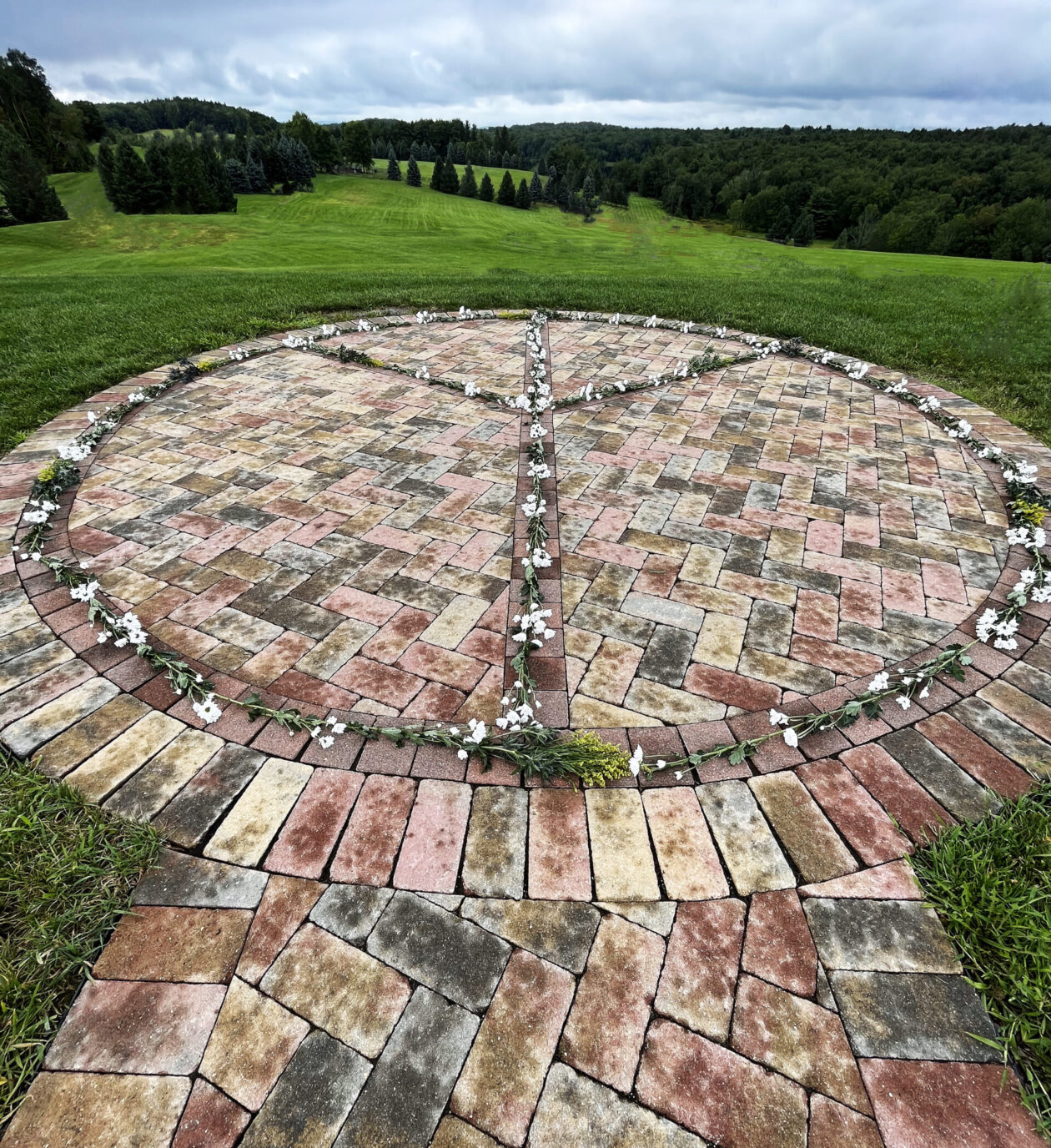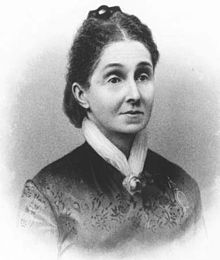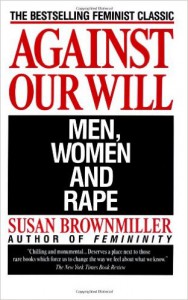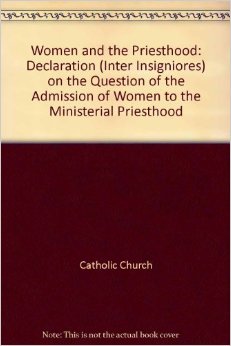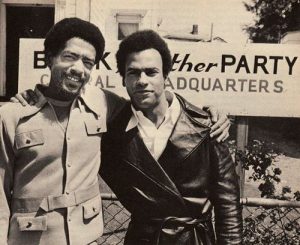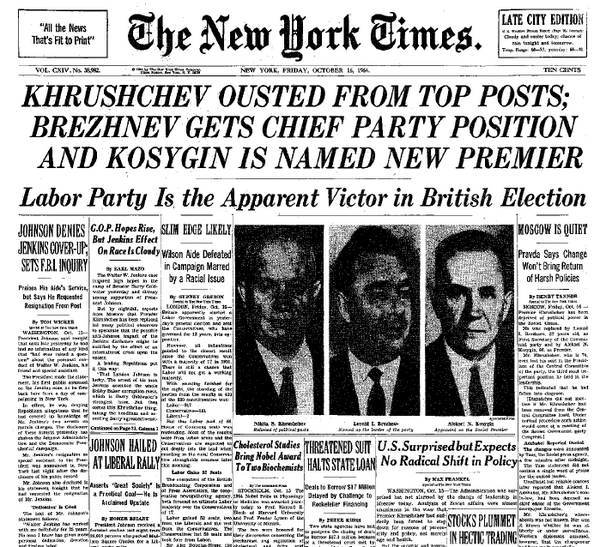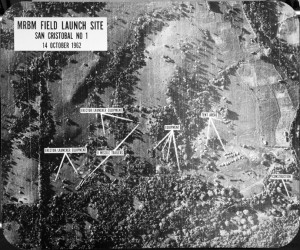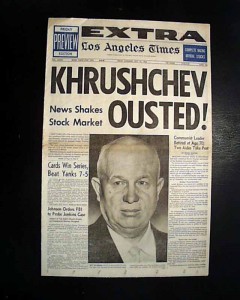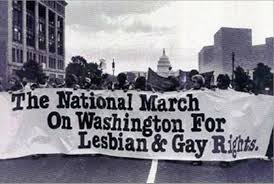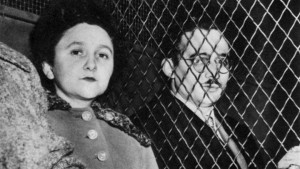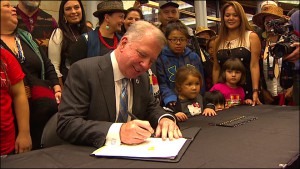October 15 Peace Love Art Activism
FEMINISM
Voting Rights
October 15, 1872: Virginia Minor tried to register to vote for the upcoming election, but was refused by St. Louis’ sixth district registrar, Reese Happersett. Happersett refused to register Minor because she was female, thus provoking a civil suit brought by Virginia and her lawyer husband, Francis Minor. Minor’s action was part of a nation-wide pattern of civil disobedience, in which hundreds of women across the country attempted to vote. (see Nov 5)
Against Our Will
October 15, 1975: journalist and historian Susan Brownmiller published Against Our Will: Men, Women, and Rape. The book addressed social, political, and historical attitudes toward rape as well as the longstanding legal inequalities between men and women. Brownmiller is the first to use the term “date rape.” (see January 1, 1976)
Roman Catholic Church
October 15, 1976: the Roman Catholic Church’s Sacred Congregation for the Doctrine of the Faith issued a Declaration on the Question of the Admission of Women to the Ministerial Priesthood which concluded that for various doctrinal, theological, and historical reasons, the church “… does not consider herself authorized to admit women to priestly ordination.” The most important reasons stated were first, the church’s determination to remain faithful to its constant tradition, second, its fidelity to Christ’s will, and third, the idea of male representation due to the “sacramental nature” of the priesthood. (see February 2, 1977)
Malala Yousafzai
October 15, 2012: the Pakistani schoolgirl who was shot by the Taliban a week earlier for advocating girls’ education arrived in Britain for emergency specialist care.
She was transported from Rawalpindi, Pakistan on an air ambulance sent from the United Arab Emirates to Britain, where she would undergo emergency specialist care. (see November 27)
October 15 Peace Love Art Activism
BLACK HISTORY
Civil Rights Cases
October 15, 1883: in the Civil Rights Cases [a group of five similar cases consolidated into one issue] the Supreme Court held that Congress lacked the constitutional authority under the enforcement provisions of the Fourteenth Amendment to outlaw racial discrimination by private individuals and organizations, rather than state and local governments.
More particularly, the Court held that the Civil Rights Act of 1875, which provided that “all persons within the jurisdiction of the United States shall be entitled to the full and equal enjoyment of the accommodations, advantages, facilities, and privileges of inns, public conveyances on land or water, theaters, and other places of public amusement; subject only to the conditions and limitations established by law, and applicable alike to citizens of every race and color, regardless of any previous condition of servitude” was unconstitutional.
The 8-1 decision by Justice Joseph P. Bradley,the Court held that the language of the 14th Amendment, which prohibited denial of equal protection by a state, did not give Congress power to regulate these private acts, because it was the result of conduct by private individuals, not state law or action, that blacks were suffering. (see July 10, 1890) (NYT civil rights decision)
MARTIN LUTHER KING
October 15, 1963: the FBI circulated a report on alleged Communist influence in the civil rights movement that had as its major focus an attack on Dr. Martin Luther King. The report was so biased and racist that it alarmed members of President John Kennedy’s administration, who ordered that all copies be withdrawn two weeks later, on October 28. Assistant Attorney General Burke Marshall later told the Senate Church Committee (January 27, 1975) that the report was “a personal diatribe . . . a personal attack without evidentiary support . . . .” Assistant FBI Director Alan Belmont had described the report as “good reading,” conceding that it “may startle the Attorney General [Robert F. Kennedy].” (BH, see Oct 22; MLK, see Dec 23)
Black Panthers/Malcolm X
October 15, 1966: in the wake of the assassination of Malcolm X (February 21, 1965) and of Watts riots (August 11– 15, 1965) and at the height of the civil rights movement led by Dr. Martin Luther King, Jr., Huey P. Newton and Bobby Seale wrote the first draft of the Black Panther Party for Self-Defense (BPP) 10 – Point Program.
Point #1: We Want Freedom. We Want Power To Determine The Destiny Of Our Black Community. We believe that Black people will not be free until we are able to determine our destiny. (full statement) (next BH, see Oct 29; next BP, see Nov 30; next MX, see February 11, 2021)
SOUTH AFRICA/APARTHEID
October 15, 1989: the government freed eight of the country’s most prominent political prisoners, including Walter Sisulu, 77, a mentor to Mr. Mandela and his close friend, in a gesture that was widely seen as a trial run for Mandela’s release. (see February 2, 1990)
Separate Amenities Act
October 15, 1990: South Africa’s Separate Amenities Act, which had barred blacks from public facilities for decades, was scrapped. [SA History article] (see June 17, 1991)
1993 Nobel Peace Prize
October 15, 1993: Nelson Mandela and Frederik Willem de Klerk shared the Nobel Peace Prize. The two men accept the award with the strained grace that characterized their relationship, and Mandela declined to repeat his much-quoted assessment of de Klerk as a man of integrity. [CBS News article] (see Nov 18)
Murders of Civil Rights Workers Chaney, Goodman, and Schwerner
October 15, 2013: the U.S. Supreme Court said it would consider arguments from a former Ku Klux Klansman Edgar Ray Killen who was convicted in the 1964 slayings of three civil rights workers. Killen said he was denied constitutional rights in his Mississippi trial.
He made the same arguments to a federal judge in Mississippi in 2012 and before the 5th U.S. Circuit Court of Appeals in New Orleans earlier this year. He lost in both courts. The Mississippi attorney general’s office said that it had notified the Supreme Court that no response to Killen’s petition would be filed. (BH & Murders, see Nov 4)
Laquan McDonald
October 15, 2019: Chicago police spokesman Anthony Guglielmi said that imprisoned Chicago police Officer Jason Van Dyke formally resigned from the department last week.
Van Dyke had stepped down ahead of formal termination proceedings before the Chicago Police Board. (next B & S, see ; next LMc, see Oct 24)
October 15 Peace Love Art Activism
US Labor History
October 15, 1914: President Woodrow Wilson signed the Clayton Antitrust Act—often referred to as “Labor’s Magna Carta”—establishing that unions are not “conspiracies” under the law. It for the first time freed unions to strike, picket and boycott employers. In the years that followed, however, numerous state measures and negative court interpretations weakened the law. (see January 12, 1915) (NYT Clayton bill signed)
October 15 Peace Love Art Activism
FREE SPEECH
“Don’ts and Be Carefuls”
October 15, 1927: almost from the time motion pictures appeared there were strong social and political pressures to censure their treatment of sexuality. In the 1920s, Hollywood made several efforts to head off official censorship through voluntary self-censorship efforts. The list of “Don’ts and Be Carefuls,” issued on this day, was one part of that effort. The list prohibited “pointed profanity,” including the use of “God,” “Jesus,” “hell,” “damn,” and others; trafficking in drugs; miscegenation; “suggestive nudity;” scenes of actual child birth; and “willful offense to any nation, race, or creed.” The “be carefuls,” included use of the flag; use of firearms; “attitude toward public characters and institutions;” rape or attempted rape; “first night scenes” [presumably the] first night of marriage; surgical operations; “excessive or lustful kissing;” surgical operations; and others.
The “Don’ts and Be Carefuls” were voluntary and had little impact. Many of the early talkies (which were just beginning to develop in 1927) in the 1930–1933 years were pretty racy. Under pressure from a Catholic-led boycott of “objectionable” films, Hollywood, on June 13, 1934, adopted the infamous 1934 Production Code, which put a heavy hand of censorship on Hollywood until the late 1960s. [list] (see November 25, 1930)
Nazis in America
October 15, 2005: a riot broke out in Toledo, Ohio provoked by the plans of a group of neo-Nazis to march through a predominantly black neighborhood. [CBS News report] (see Dec 20)
Terry Jones
October 15, 2013: Circuit Judge Roger Alcott delayed arraignment for two weeks while lawyers for the state and Jones continue to discuss a possible plea agreement. Jones did no attend the court proceeding. (see Nov 13)
Colin Kaepernick
October 15, 2017: quarterback Colin Kaepernick, who remained unemployed after the 2016 season in which he began the movement of players protesting during the national anthem, filed a grievance accusing NFL teams of improperly colluding to keep him out of the league.
Kaepernick reportedly retained an attorney to pursue the collusion claim and it will be Kaepernick’s outside legal representation and not the NFL Players Association primarily in charge of preparing and presenting his grievance.
The collective bargaining agreement (CBA) between the league and the players’ union prohibits teams from conspiring to make decisions about signing a player. but the CBA also said the mere fact that a player was unsigned and evidence about the player’s qualifications to be on an NFL roster do not constitute proof of collusion. (FS, Labor, & CK, see Oct 16)
October 15 Peace Love Art Activism
Japanese Internment Camps
October 15, 1943: at the Tule Lake Segregation Center internment camp in California – which held over 18,000 Japanese Americans during World War II – a truck carrying agricultural workers tips over, resulting in the death of an internee. Ten days later, the agricultural workers went on strike; the internment camp director fired all of the workers and brought in strikebreakers from other internment camps. After several outbreaks of violence, martial law was declared and 250 internees were arrested and incarcerated in a newly constructed prison within the prison. (see Internment for expanded story)
October 15 Peace Love Art Activism
October 15 Music et al
Beatles in recording studio
October 15, 1960: in a small Hamburg recording studio, the Akustik, The Beatles (minus Pete Best) and two members of Rory Storm’s Hurricanes (Ringo Starr and Lou “Wally” Walters) recorded a version of George Gershwin’s “Summertime”, which is cut onto a 78-rpm disc. This was the first session that included John, Paul, George, and Ringo together. Two other songs were recorded, but Ringo played on those without John, Paul, or George. Nine discs were cut, but only one is known to have survived. (see Nov 1)
Four Tops
October 15 – 28, 1966: “Reach Out I’ll Be There” by the Four Tops #1 on the Billboard Hot 100.
Sacramento Pop Festival
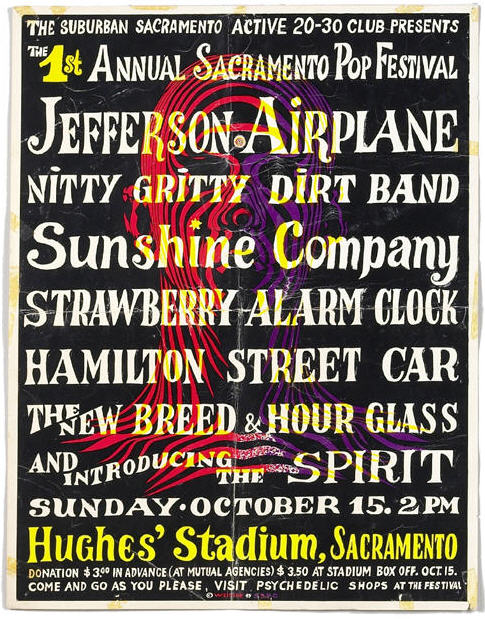
October 15, 1967 the first Sacramento Pop Festival took place which featured Spirit, Jefferson Airplane, Nutty Gritty Dirt Band, Strawberry Alarm Clock and Sunshine Company. (see May 18 – 19, 1967)
October 15 Peace Love Art Activism
Vietnam
DRAFT CARD BURNING
October 15, 1965: after draft card burning was made illegal, David Miller, a Catholic pacifist, became the first person to publicly burn his draft card to protest the Vietnam War (although in truth it may well have been simply the first draft card-burning incident to be widely publicized). Anti-war demonstrations were held in 40 cities, with a combined attendance of 100,000 people. (Draft Card, see Oct 18)
Merry Pranksters
October 15, 1965 : among that day’s protests, the Vietnam Day Committee organized a sit in at the San Francisco State College, which saw a performance by Country Joe and the Fish. The Merry Pranksters attended and Ken Kesey spoke. (Vietnam, see Oct 16; LSD see Nov 21)
Immolation
October 15, 1967: protesting the Vietnam War, Florence Beaumont, mother of two, burned herself to death. After soaking herself in petrol she set herself alight in front of the Federal Building, Los Angeles. (next Vietnam, see Oct 16; see Immolation for expanded story)
Peace Day
October 15, 1969: Peace Day. 500,000 protesters nationwide. First Vietnam Moratorium. Pete Seeger sings “Give Peace a Chance,” a song he originally didn’t think much of but afterwards said, “The high point of the afternoon came…when a short phrase from a record by Beatle John Lennon was started up…” [Boston Globe article] (see Oct 19)
October 15 Peace Love Art Activism
IRAQ
October 15, 1994: Iraq withdrew troops from its border with Kuwait. (see August 31, 1996)
October 15 Peace Love Art Activism
Voting Rights
October 15, 2014: Arkansas’ highest court struck down a state law that required voters to show photo identification before casting a ballot, ruling the requirement unconstitutional.
The state Supreme Court upheld a lower court ruling that determined the law unconstitutionally added a requirement for voting. The high court noted that the Arkansas Constitution lists specific requirements to vote: that a person be a citizen of both the U.S. and Arkansas, be at least 18 years old, and be lawfully registered. Anything beyond that amounts to a new requirement and is therefore unconstitutional, the court ruled. (see March 23, 2015)
October 15 Peace Love Art Activism
LGBTQ
October 15, 2017: the US Justice Department announced that it would dispatch an experienced federal hate crimes lawyer to Iowa to help prosecute Jorge “Lumni” Sanders-Galvez, 22, one of two men accused of killing Burlington High School student Kedarie Johnson on March 2, 2016.
The Justice Department rarely assigned its lawyers to serve as local prosecutors, and only in cases in which they can provide expertise in areas that the federal government viewed as significant. By doing so in this instance, Attorney General Jeff Sessions put the weight of the government behind a small-city murder case with overtones of gender identity and sexuality. (LGBTQ, see Oct 30; Johnson, see Nov 3)
October 15 Peace Love Art Activism
Immigration History
Separated children
October 15, 2018: according to a CNN article , “…officials said in a court filing that more than 200 children from separated undocumented immigrant families remain in US custody, Most of the 245 children in custody have parents who were removed from the United States — 175 children, according to the latest government tally.
Of those, only 18 children are currently in the pipeline to reunite with their parents in their countries of origin, according to court documents. Deported parents of 125 kids in custody have said they don’t want their children to be returned to the countries of origin. And there are 32 children in government custody for whom the American Civil Liberties Union has not yet provided notice of whether parents want to reunify or decline reunification, officials said.” (see Oct 30)
Second Veto
October 15, 2019: President Trump issued his second veto against legislation seeking to end his national emergency at the southwestern border, rejecting bipartisan objections to his efforts to obtain funds for a border wall.
His veto returned the resolution to Congress where it was unlikely to garner the two-thirds majority needed there to override the veto.
The announcement came exactly seven months after Trump had issued the first veto of his presidency against a nearly identical resolution that would have terminated the national emergency. He declared the emergency earlier this year after Congress declined to designate money for his border wall; he has sought to allocated funds from other government agencies to the southwestern border.
Trump, announcing the veto, noted that he had vetoed the earlier measure “because it was a dangerous resolution that would undermine United States sovereignty and threaten the lives and safety of countless Americans.” [NYT article] (next IH, see Oct 18; next TW, see Nov 2)
October 15 Peace Love Art Activism
Trump Impeachment Inquiry
October 15, 2019: George P. Kent, the deputy assistant secretary of state in charge of Ukraine policy, arrived on Capitol Hill to face questions from investigators about his knowledge of the widening Ukraine scandal.
Kent, who appeared behind closed doors despite the State Department directing him not to do so, had raised concerns to colleagues early this year about the pressure being directed at Ukraine by President Trump and his private lawyer, Rudolph W. Giuliani, to pursue investigations into Trump’s political rivals, according to people familiar with Kent’s warnings.
As far back as March, they said, Mr. Kent was pointing to Mr. Giuliani’s role in what he called a “disinformation” campaign intended to use a Ukrainian prosecutor to smear targets of the president. [NYT article] (see TII for expanded chronology)
